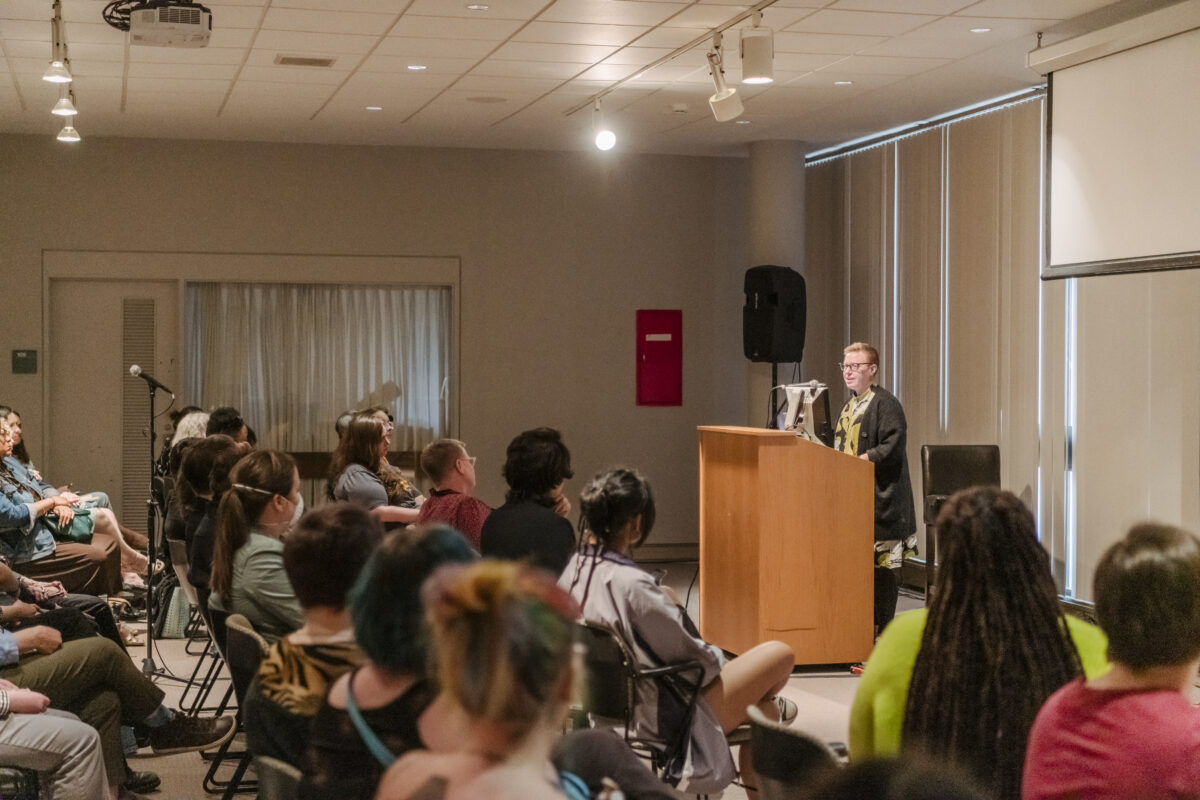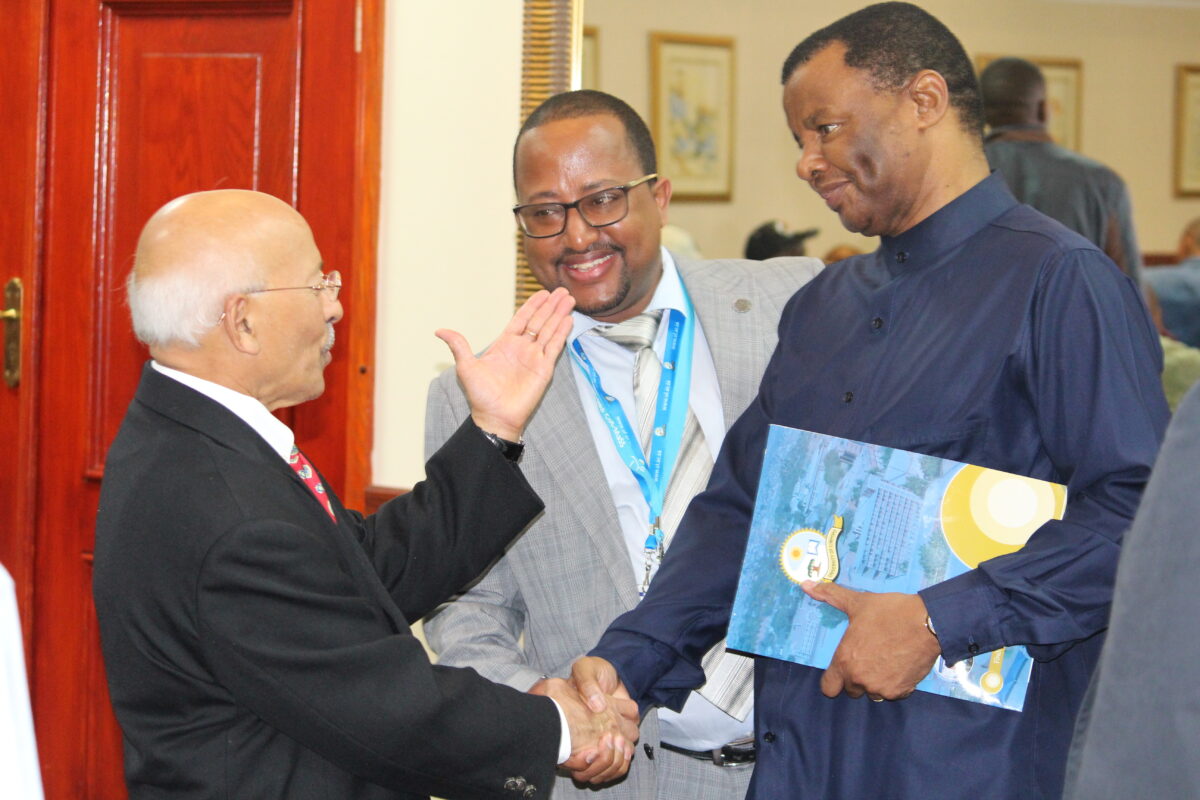 Every so often, we’ll chat with an alum about what they do and how they got there. Today, in honor of National Poetry Month, we’re talking with English teacher and poet Jackie (Vreatt) Regales ’00, American studies, who spends much of the day sharing her love of the written word with the next generation…
Every so often, we’ll chat with an alum about what they do and how they got there. Today, in honor of National Poetry Month, we’re talking with English teacher and poet Jackie (Vreatt) Regales ’00, American studies, who spends much of the day sharing her love of the written word with the next generation…
Name: Jackie (Vreatt) Regales ’00, American studies
Job: English teacher at Roland Park Country School
Website: A Patchwork Life: Writing, Teaching, and Piecing it all Together
Q: Tell us a little about why you decided to get into education.
A: My mother taught high school for 38 years (I even had her for AP U.S. History!), and I always said I wouldn’t go into teaching because I saw how hard she worked, and how difficult her job really was. But then as a senior [at UMBC], I had the chance to be a teaching assistant for Dr. Pat McDermott, who is now a Vice Provost, but was then in the American Studies department. I led a few discussions and activities in her class that semester, and it was such an amazing experience that I knew I had to follow this path further. I went to graduate school on a teaching assistantship, and knew for certain that teaching was the right career for me.
Q: What do you love most about teaching? What do you find most challenging?
A: The best moments in my job are when I get to see students fall in love with a book, a book that either changes how they see the world or makes them feel less alone in the world, books like The Great Gatsby or The Catcher in the Rye, both of which I disliked when I first read them, but now adore after getting to teach them. I also feel so fulfilled when a student who previously didn’t like reading or felt like a terrible writer makes leaps and bounds of progress and feels so much more skilled and confident at the end of the year.
What do I find challenging about teaching? Personally, I find that teaching is the kind of job that can suck up every possible minute you let it; there’s always grading to do, or lessons that could be better, new books to consider or research that promises to finally help kids understand grammar better. I know we get the summers off, which I definitely value, but most teachers I know are working way more than forty hours a week during the school year, and many spend summer hours trying to develop themselves more as professionals.
Another challenge is how invested we come to feel in the lives of our students and families, and how vulnerable that makes us. Every teacher has a story about the kid they couldn’t reach or save, the family that broke apart in violent ways and the girl or boy caught in the middle, the realization that we can’t make a kid hear something they aren’t ready to understand yet about themselves. High school kids can really break your heart, and each year, we open ourselves up to a new wave of them!
Q: You’ve even come back to teach at UMBC, right? What did you teach, and how did it feel to be teaching at your alma mater?
A: I did! After I earned my master’s degree, I was doing some adjunct teaching when Jason Loviglio offered me a few classes in the newly developing Media and Communication Studies program. I taught a 300-level elective on “Facebook Culture,” as well as a 300-level course for students in the major, and assisted Donald Snyder with the capstone research seminar. This was a wonderful opportunity for me, and certainly the best adjunct experience I ever had! As far as teaching at my alma mater, I loved it; intellectually, it was exciting to have the freedom to develop these courses, and Jason and Donald were welcoming and supportive mentor figures. I definitely put some pressure on myself to succeed so that Jason’s faith in me would be rewarded, because he was an influential professor for me as a student as well.
Q: You’re also a poet. How do you keep yourself going, creatively, and how do you instill the love of poetry in your students?
A: One of my assets as a writer has been surrounding myself with encouraging resources. My husband has always my biggest fan, and I’m also lucky to have Seth Sawyers ’99, history, a writer friend in my life I can ask for feedback; we actually met when we were both tutors at the Writing Center at UMBC. As far as keeping going creatively, the wisest decision I made was to let go of any pretenses about what I needed in order to write: a room of my own, uninterrupted spans of time, the structure of a formal writing program, unlimited childcare, a personal chef or housekeeper, etc. I would still love to have some or all of those things at some point in my life, but what I realized is that I don’t need them—what I need is to write, to make some space in my life whenever possible to get the words down onto the page. Writing is part of how I process the world, and is integrally part of how I approach my life. Therefore, postponing writing until I had more time, money, peace, whatever was never really an option, so I learned how to weave it through my life as best I could.
One of my favorite ways to help my students love poetry is to encourage them to simply stay open to it; so many students (and adults!) see poetry as this mysterious and indecipherable code that makes them feel stupid or ignorant. During National Poetry Month, I give my students extra credit for public poetry projects on campus; they choose poems, I approve them, and then they do something public to introduce that poem to our community. This year I’ve got students eager to read poems with first-graders, make bulletin board displays of Russian poetry and decorate our campus bathrooms with Maya Angelou’s “Phenomenal Woman” to help encourage self-esteem in their classmates. Explicating poetry is a valuable skill, but I also want to surprise students into finding something valuable and beautiful in poetry without necessarily understanding anaphora or trochaic tetrameter.
Q: Tell us about some of your writing projects!
A: Right now, I’m part of an exciting project involving found poetry, which is basically the literary equivalent of a collage, taking words and phrases from existing texts and using them to form and inspire new pieces of writing. I’m one of 85 participating poets in the Pulitzer Remix project, sponsored by The Found Poetry Review. Each poet was assigned a book that has won the Pulitzer Prize for literature, and each day during National Poetry Month, we are writing/posting poems we created from the text of our prize winner. By the end of the project, we will have created over 2500 found poems! I have participated in poetry month challenges for the past few years, writing a new poem each day in April based on various prompts, but this has been a big leap of faith for me, and it’s been invigorating and inspiring to challenge myself in this way.
Q: In honor of National Poetry Month, what poet/poem would you like to share with your UMBC alumni friends, and why?
A: One of my favorite poets is Pablo Neruda; his work is clear, simple, powerful and beautiful, rich with metaphors and similes, with such range and passion that it’s difficult to resist. He was a deeply political poet in many ways, and wrote movingly about the landscape of his native Chile, but it’s his love poetry that really makes me swoon. Try “I can write the saddest verses,” “I like it when you’re quiet,” or my absolute favorite, “I don’t love you as if you were a rose” and see if you don’t get a little smitten with Neruda too.




